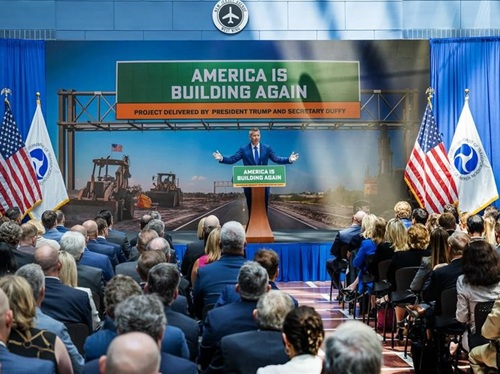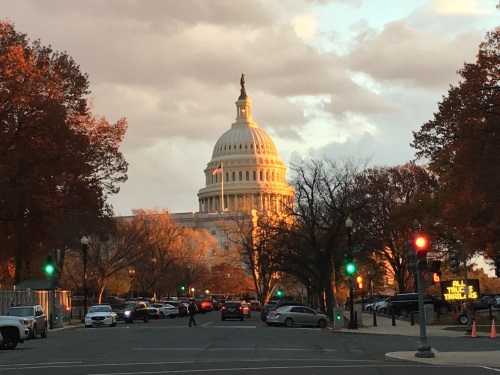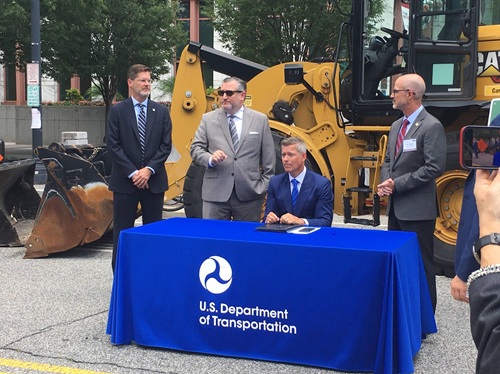As the House Committee on Transportation and Infrastructure works on its surface transportation authorization legislation – due to be released “this spring,” according to Rep. Peter DeFazio, D-Ore., the committee’s chair – a “formal process” is being crafted that will allow members of Congress to submit “requests for highway and transit project designations.”

Commonly called “earmarks” in the past and banned after Republicans gained control of the House in 2011 following the 2010 elections, those “designations” will allow members of Congress to “engage” on critical infrastructure projects that are consistent with state and local infrastructure plans, Rep. DeFazio said.
“The discretion to fund projects should not be reserved for state or federal bureaucrats,” he noted in a statement.
“Elected representatives know the infrastructure needs of their district and should be allowed to identify projects and advocate on behalf of their constituents in legislation,” Rep. DeFazio said. “With a transparent, efficient process in place to identify district priorities, coupled with good partnership from the federal government, Congress can help put people to work on badly needed infrastructure projects and transform the way we build and move.”

“Infrastructure projects Members of Congress identify after consultation with local officials often are urgent and need local priority,” added Eleanor Holmes Norton, D-Washington D.C., chair of the House T&I’s Subcommittee on Highways and Transit. “We have surrounded our new process with the transparency to assure projects meet federal and local standards.”
The House T&I Committee will require all submissions to include the following information for each project requested:
- Documentation of whether the project is on the state, Tribal, or territorial transportation improvement program or STIP and on the metropolitan transportation improvement program or TIP, if applicable.
- Sources of funding for the full share of the cost of the project beyond the amount requested.
- Letter(s) of support from the state department of transportation, or local government, transit agency, or other non-federal sponsor.
- A description of the process for providing public comment on the project.
- The current project timeline, such as whether it is in the planning stage, final design stage, or under construction.
- The project’s National Environmental Policy Act category of action and status of its environmental reviews.
- Whether the project previously received federal funding and, if so, the source and amount.
- Certification that the Congressional member, their spouse, and other immediate family members do not have a financial interest in the project.
The House T&I Committee also said it plans to hold its annual “Member Day” hearing on April 14 to receive testimony from Congressional members regarding their policy priorities.
 Top Stories
Top Stories


